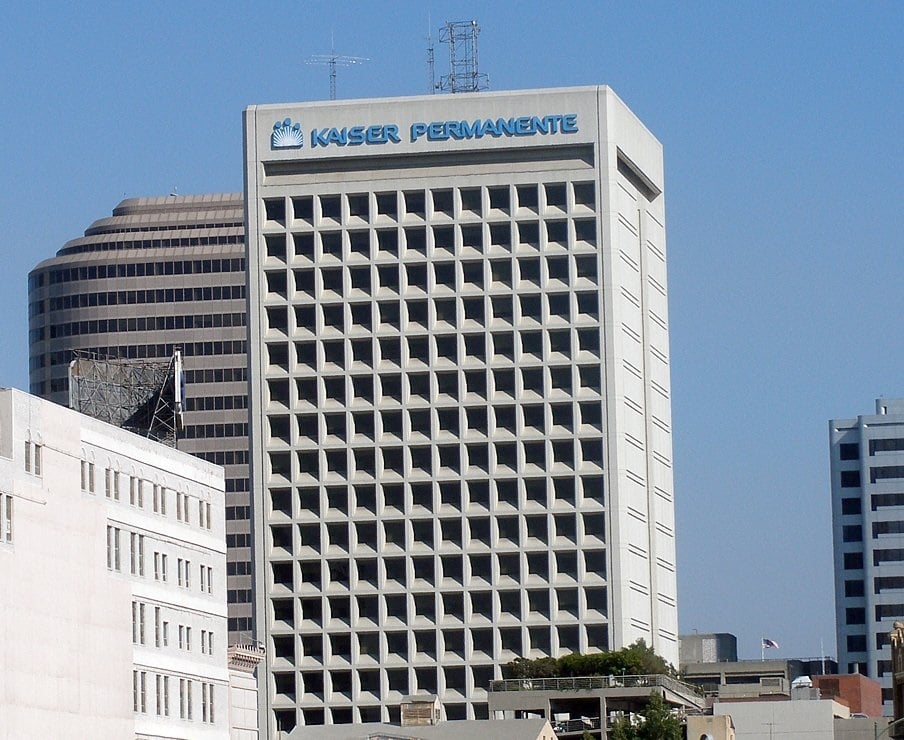(CN) — A Ninth Circuit panel revived an antitrust lawsuit accusing health care giant Kaiser Permanente of trying to monopolize the health insurance market in California’s Solano County.
The hospital group, NorthBay Healthcare, accuses Kaiser Permanente of steering insured trauma patients away from its hospitals and instead only sending uninsured patients.
Northbay also accuses Kaiser of breaking a reimbursement agreement with NorthBay and cutting the amount the hospital could recoup for its medical services, according to a complaint filed in the Northern District of California in 2017.
Kaiser did these things to financially harm NorthBay and a competitor insurance provider, Western Health Advantage, according to their complaint.
U.S. Magistrate Judge Laura Beeler dismissed the lawsuit finding NorthBay failed to show the four essential elements of “causal antitrust injury” and therefore could not support its monopolization and conspiracy to monopolize claims.
But on Tuesday, a divided Ninth Circuit panel reversed Beeler and resuscitated the case.
The majority found NorthBay had made a sufficient showing that Kaiser was involved in unlawful conduct, despite Beeler finding the scenario where “lucrative patients” were steered away to drain NorthBay of its resources was lacking.
“However ‘fanciful’ these facts may seem is irrelevant,” the majority wrote in its unpublished memorandum opinion. “Given that only the claim needs to be plausible, and not the facts themselves, we disagree with the district court’s conclusion that any further factual enhancement was necessary.”
The termination of a 2010 reimbursement agreement that cut profits to NorthBay supports the unlawful conduct claim as Kaiser Permanente “exposed themselves to potential liability under California law,” went against its own interests and was meant to injure NorthBay, the majority found.
The financial hit NorthBay took also leans into the next elements of causal antitrust injury and injury flowing from anticompetitive conduct that hurt its efforts to invest in its hospital facilities and services writes the majority.
“NorthBay’s steering and reimbursement allegations caused financial injuries that go to the heart of anticompetitive conduct,” the majority wrote. “And NorthBay alleges that defendants’ unlawful conduct has worked because, to date, it has had to curb future investment plans, close departments, lay off employees, and reduce services available to the public. These alleged injuries to NorthBay undoubtedly ‘hurt competition.’”
Because NorthBay could not complete the major investment projects at its facilities, its quality of services suffered.
“Such disruption could, as alleged, diminish the quality of services for the public and thus fall under the type of protection the antitrust laws were intended to afford,” the majority found.
Regarding the last antitrust injury element, the panel found NorthBay and Kaiser were competitors in the same market even though NorthBay was not in the insurance market. Western Health Advantage — part of NorthBay’s hospital system — is Kaiser’s only competitor in the Solano County market so any injury suffered by NorthBay would hurt Western under U.S. Supreme Court precedent in Blue Shield of Virginia v McCready.
“Thus, defendants sought to injure NorthBay’s investment projects by steering patients and cutting reimbursement rates, which, in effect, aided its efforts to squeeze Western out of that market and maintain a monopoly,” the majority wrote.
Bill Clinton appointees U.S. Circuit Judge Richard Paez and Senior U.S. District Judge Janis Jack, sitting by designation from the Southern District of Texas, made up the majority.
In a 14-page dissent, U.S. Circuit Judge Carlos Bea wrote “NorthBay set for itself an uphill climb” to try and prove that Kaiser was building a monopoly against two parties that were not its direct competitors.
“The majority is wrong to push NorthBay over the top by unmooring McCready entirely from the market participant rule,” the George W. Bush appointee wrote.
Bea said NorthBay’s own “complex financial decision-making processes” were based on “assumptions and predictions made apart from any intervention by Kaiser” and defeat any alleged unlawful conduct claims.
The judge compared NorthBay’s claims to sinking the eight-ball on a straight shot on a pool table as “opposed to sending the cue ball careening into the racked billiard balls at the beginning of the game, when the eight-ball is nestled in the middle of the racked balls, and hoping for the best.”
He added: “The former outcome is direct causation; the outcome of the latter is famously beyond ordinary human ability accurately to predict. Like the multiple assumptions and predictions of NorthBay, the balls racked around the eight-ball sever the proximate causal relationship between the cue ball and the eight-ball, which may, or may not, end up in the side pocket by the effort of the player.”
NorthBay declined to comment on the court’s ruling. Kaiser Permanente
Kaiser Permanente said it is surprised and disappointed in the court's decision.
"We are evaluating our options regarding this split decision, which is a “memorandum disposition” and therefore is not precedent, particularly in light of what Judge Bea called the 'thin gruel' of NorthBay’s allegations and his description of the clear ways the Dec. 8 decision conflicts with precedent," Kaiser Permanente said in a statement.
The health care giant said it is "committed to affordable health care and that includes paying a fair and reasonable rate for emergency services provided to our members by other hospitals, consistent with California law."
Subscribe to Closing Arguments
Sign up for new weekly newsletter Closing Arguments to get the latest about ongoing trials, major litigation and hot cases and rulings in courthouses around the U.S. and the world.








